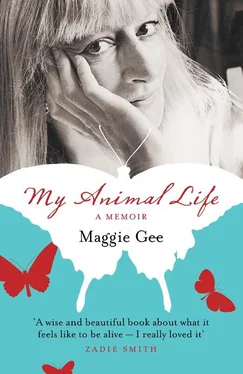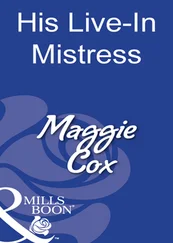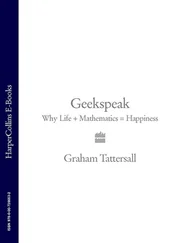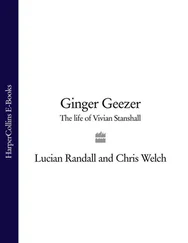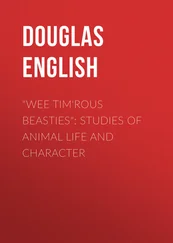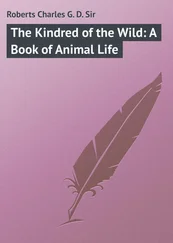(After writing that paragraph, I worry. Of course I only write it because I did breast-feed, it worked for me, we were both happy. If I had not been able to, as might well have happened, for at one point my nipples became so painful that I had to use, briefly, an anaesthetic spray that is now no longer legal — sorry, Rosa — I would see things differently, would take the practical line about babies surviving perfectly well on formula milk — which of course, they do. Advice, advice. How pleasant to give it. But taking it’s like eating pellets of paper.)
Children do need parents, and an animal life. A chance to climb and run and play out of the house, somewhere where the parents don’t know what they are doing. A chance to take some manageable physical risks, so they can find out for themselves how far they can go. But my father banned ballet, which would hurt my feet, skating and roller-skating (risk of falling over), horse-riding (risk of falling off), tree-climbing, unless in Grandpa Gee’s apple-tree (risk of falling down and breaking neck), Girl Guides (risk of uniforms and fascism), bike-riding (risk of road accidents), pets (risk of bites, scratches, infection), make-up and layer-cuts (risk of sex), walking on my own (risk of sex and murder), sitting in the sun (risk of sunburn), too much reading (risk of myopia), bed after 7.30 (risk of insomnia), television (risk of ideas from America). I was over-protected to a great degree, so my happiest memories of the years between nine and fourteen, the years when children should be starting to explore the world and test out their abilities, are all to do with times when my father had no idea what I was up to.
The risks of blanket prohibition should be plain. If parents know about something, they can mitigate the dangers; if children tell them nothing, they are in the dark. I don’t think it occurred to Dad that we would defy him, although he always told us to think for ourselves. I put this suggestion into practice.
I was allowed to play in people’s houses, whither I would be accompanied, and later collected. In point of fact, few people asked me, probably from a sense that our family was different, in a village where most people had lived for generations — the Toppers, the Muggeridges, the Aylings — and where nearly all children had to go, in the end, to the school where my father was head. In any case, raven-haired, freckled Pat Brewer asked me to her house, which was down past the station, not so modern as ours, part of a little row. Pat had a younger sister, and her mother was a flushed, kindly woman. Pat said we would go and play in the woods. ‘I’m not allowed to,’ I said — and followed her.
So began a magical, terrifying time when we excited and frightened ourselves half to death. Daux Wood had a typical Sussex ecology, a mix of bushes and saplings and big stag-headed oaks, with smaller hawthorns and silver birches and sandy, chalky clearings full of bluebells. We ran across the half-expected hazards: couples having sex in the long grass, vaguely-seen, because we turned our heads away and hurried on, flashes of white and wet red against the darkness which made us giggle and choke as we ran. The real fascination lay in going on further, piercing the thickets of brambles and bracken, pushing on after the paths had nearly all petered out. If you did so — with no idea of how you had come, so we never knew if we’d be able to find it again — you suddenly came to a patch of half-cleared heathland, slightly higher than the rest, hemmed in by forest.
I suppose, though recreating childhood distance is hard, it was a hundred yards square, or maybe less. Whenever we found it, it looked slightly different. Sometimes we seemed to see men, on their own, frightening men in drab brown macks, or men we allowed ourselves to think frightening, and perhaps, in fact, there was only one. The area was protected by a barbed wire fence which hung disconsolately in broken loops. We named it — probably I named it, since I was the child in love with names — the May Islands, after the regular circular bushes of hawthorn (also called ‘may’) round the perimeter, which were yellow-creamy-white in the month of May, and had the sweet, poisonous smell of danger. Once I broke some off and took it home to my mother, lying ‘Pat’s Mum sent you flowers from her garden.’ But the petals were already falling like dust, and my mother said, ‘May in the house is unlucky,’ which added to my triumphant sense that the place where they had come from was criminal and sinister. Often we ran away as soon as we glimpsed the line of yellow bushes, unable to stand the tension any more.
But once at least, we went much further. At the centre, almost invisible from the edge, there were some long low buildings with shuttered windows, half-buried in the ground, with flat corrugated roofs, a spooky, deserted, inexplicable place with a notice whose lettering was painted out. Once something moved behind a half-darkened window and we ran, scraping our knees, twisting our ankles, for home. We built stories around it; we became secret agents. We could not stay away, though we could hardly bear to be there. In my mind the strange, sickly beauty of the hawthorn blossoms became confused with a sense of sin, the fact that Pat and I were risking our lives, the man, or men, we had seen or not seen, the hot-faced couples crushing the grass. I was nine, nearly ten, Pat was ten, nearly eleven, we were both on the verge of adolescence, and for both of us, for the whole of one spring, Daux Wood was the best place we had ever been.
In the end I could not resist telling my mother. She looked worried and said, ‘There used to be a prisoner-of-war camp in there. You shouldn’t go there. It’s trespassing.’ She told my father, and that was that. No more visits to the Brewers.
But children need fun, and adventures. They need to find the borderlands of what is forbidden. After Pat had faded, Janet Gray became my friend, and was my ‘home’ best friend for the next ten years, until life sent me to university and her to a nurses’ training college. One of the best things about Janet, apart from her love of running and her malleable nature, her kindness to me and her perfect small nose and her tomboyishness, which matched my own, was that her house was the total opposite of mine, full of people, noisy, easy-going. As usual, with very close relationships, there were psychic similarities, too, about our families.
For a start, she, like me, had two brothers, one real and one step, Graham and Dennie. Her stepfather, Reg Leadbetter, a farmhand whose work had given them the house, a big square tied cottage on Billingshurst High Street, would sometimes put his foot down; he seemed strange and old, wiry and weather-beaten, hard to understand with his strong Sussex accent, but he grinned at me, gappily, amiably enough, though once when I stayed one night too many I heard him in the bedroom: ‘When’s that gal going?’ Whereas Janet’s mother Renee (it rhymed with ‘beanie’) was adorable, a pushover. I love her still. I see her in the white overall she wore to work in the old people’s home, her big toothy smile and shallow chin, always pleased to see me, often laughing, short black wavy hair streaked with grey. Kind to me. Loving to Janet. (What do children need? Kindness. Love.) There was a box of chocolates always open in the kitchen, and luscious white bread, forbidden at home. At Christmas, a row of bottles of sweet drinks. They had a small steep garden and a kind of shed where the boys were often doing something with bikes. In the front room the TV was always on. There was a huge dark sofa, into which you sank, and sat in a row in contented silence. Dennie wore leathers and had shiny black hair which he combed in a quiff, and was very handsome, more raffish and less academic than Janet’s real brother, Graham, a gentle, humorous boy who played football. Of course I was in love with both of them, which neither noticed, so all was well.
Читать дальше
